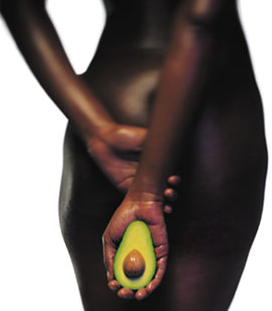It’s beyond axiomatic that you can’t make a living off of writing. However, if you’re Tom Friedman, you can make a very lucrative living off of writing extremely shittily. In spite of his noxious, self-serving ideas, I really will never stop my pointless crusade against him on the grounds that he simply can’t write at all.
In yesterday’s column, about the economic stimulus, he writes:
If China and America each give birth to a pig – a big, energy-devouring, climate-spoiling stimulus hog – our kids are done for. It will be the burden of their lifetimes. If they each give birth to a gazelle – a lean, energy-efficient and innovation-friendly stimulus – it will be the opportunity of their lifetimes.
Much has gone afoul here. First, gazelles are agnostic on innovation, as far as I can tell. Second, the pig seems to eat a stimulus while the gazelle…is a stimulus. Third, references to “our kids” probably need to be taken as “people who are currently children or who are not yet born” although the median age of a newspaper reader is like ninety-three, so their children are currently adults who will not be inheriting the consequences of “our” stimulus decisions. So those decisions probs won’t be the opportunity of a lifetime (hyperbole alert) to those who are already middle-aged or not yet alive. And note how China’s potential bad decision could create huge problems for “our kids,” when the situation at hand is mostly the US’s fault. I mean, damn.
Goddamnit, doesn’t this man have copy editors? This is the same NY Times that still says Web site instead of website, so you’d think they’d be sticklers for precision and accuracy.
In terms of actual substance, the column advocates abolishing federal income taxes for public school teachers and double the salaries of math and science teachers so we’re better prepared for stomping on Asia, Friedman’s bete-noire and the continent we will always need to be beating somehow.
Except, what we really need are mathematicians, engineers and scientists. No tax break for you people, though. Bunch of nerds. You get nothing. Just teachers, of whom we all have fond memories and one of whom is married to Tom Friedman. Basically, this reasoning is as simplistic as Bill O’Reilly’s, only he isn’t screaming about Reverend Wright or Plaxico Burress. I mean, how un-clever and un-ingenious are these proposals, really? This is what he came up with. He’s such a middlebrow demagogue. He reminds me of me when I’m really drunk, only he’s not arguing that gay people should get over marriage or that the US should have full employment. That would be radical. And to Thomas L. Friedman, anything to the left of Thomas L. Friedman is radical, or loony, or not-serious. Ask David Brooks.
Lastly, in the print version, the headline-that-goes-in-the-middle-of-the-column-to-catch-your-eye-by-digesting-its-thesis (or whatever the fuck it’s called) reads Can we have a stimulus that also stimulates? Oh, the wordplay. I’m dazzled!

